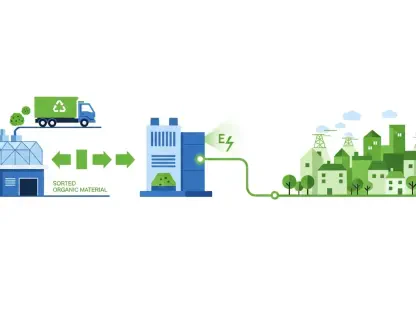When envisioning a future of sustainable skies, one might not immediately think of Nigeria. Yet, this West African nation stands at the forefront, striving to lead Africa into a new era of eco-friendly aviation. As nations worldwide grapple with the environmental repercussions of air travel, Nigeria has stepped up to play a pivotal role in transforming the continent’s aviation industry.
The Environmental Imperative
As climate change looms large, the global aviation industry faces increasing pressure to reduce its ecological footprint. According to the International Civil Aviation Organization (ICAO), the commitment to achieving net-zero carbon emissions by 2050 has become a crucial objective. This challenge underscores the broader need for the industry to transition to sustainable aviation practices, balancing environmental sustainability with economic growth. Nigeria’s proactive approach serves as a response to these global trends, indicating its dedication to shaping a greener future.
Nigeria Taking Flight as SAF Advocate
Nigeria recently hosted a groundbreaking workshop in Lagos, focusing on securing financing for Sustainable Aviation Fuel (SAF) production. Spearheaded by the Nigerian Civil Aviation Authority, this event was a collaborative endeavor that brought together participants from across Africa, including 14 other nations, project developers, and financial institutions. These efforts showcase Nigeria’s leadership in driving forward technical and financial initiatives essential for SAF development.
In addition to the workshop’s success, Nigeria has established six Technical Working Groups dedicated to guiding the development of SAF projects. These groups emphasize collaborative efforts and solidify Nigeria’s status as a leader in sustainable aviation efforts on the continent.
Insights from the Frontlines of Change
Noteworthy insights emerged from the high-level workshop, notably from keynote speaker Barrister Bukola Teriba, who highlighted the pivotal role of financing in reducing aviation’s environmental impact. Teriba’s speech accentuated how financial commitment is critical to transforming the aviation sector into a viable proponent of sustainable development. Perspectives from SAF project developers and financial institutions further illustrated both dedication and hurdles encountered in this ambitious endeavor.
For those attending the workshop, an underlying sentiment of urgency and responsibility was palpable. Anecdotes shared by attendees painted a vivid picture of the collaborative atmosphere—a testament to Nigeria’s potential to lead by example in the realm of eco-friendly aviation innovation.
Crafting Practical Pathways for Green Progress
During the workshop, strategic steps to implement sustainable aviation practices were outlined, focusing on a variety of topics. From policy regulations and feedstock production to financing mechanisms and risk mitigation strategies, experts offered actionable insights for stakeholders. The ACT-SAF Africa-India Project emphasized cross-sector collaboration, advocating for funding frameworks that make SAF development more appealing to investors.
Furthermore, discussions delved into technology and infrastructure that can support Africa’s transition to greener skies. Participants explored ways to enhance SAF project bankability, preparing to address both environmental and social impacts associated with eco-friendly aviation initiatives.
Conclusion: Charting a Greener Course Forward
As Nigeria leads Africa toward a future where sustainable aviation becomes standard, the need for strategic investment and international cooperation has never been more pressing. The success of Lagos’ recent workshop laid the groundwork for transformative changes, underscoring the essential role of innovation and collaboration in this journey. The path forward calls on stakeholders to continue supporting efforts that ensure economic growth aligns with environmental stewardship, setting an example with global implications.









